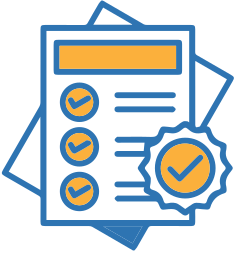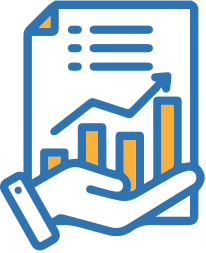The Importance Of CRM Data Hygiene To Maximizing Sales And Marketing Efforts
As most companies know, the ability to improve your marketing and sales efforts depends heavily on the data that you are collecting and analyzing. It is one of the main reasons why CRM (customer relationship management) software is critical to the success of your business. However, being able to effectively leverage the data that you’re collecting relies heavily on the integrity of that data. If your data is outdated, obsolete, incomplete, or inaccurate, it will inherently limit your ability to make appropriately informed decisions.
To prevent dirty data from hampering the growth of your business, you will need to invest in comprehensive data hygiene practices. Data hygiene is the process of cleaning the data being collected and organized in your CRM to make sure that it is accurate and up-to-date. By implementing various data hygiene practices, you will enhance your marketing and sales efforts with the actionable, trust-worthy information that is available to you.
The Benefits Of Investing In CRM Data Hygiene
Data analysis is vital to every facet of your marketing and sales strategy. Without analyzing the data that you collect, you will have a difficult time identifying what is working and what is not. For example, most businesses monitor a variety of metrics to determine what type of content their target audience engages with the most. If these metrics aren’t accurate, then you could end up making poor strategic decisions as a result. Data that is untrustworthy can also make it quite challenging to engage with prospects and customers properly.
When it comes down to it, data hygiene is an essential component of your data collection and analysis strategies. Without proper data hygiene practices in place, you could be making critical decisions based on incomplete information. It is also essential to understand that data hygiene is not a one-time process. You are continually collecting and analyzing new data, which means that a good data hygiene process is a continuous one. With that in mind, the following are some of the specific ways in which ongoing CRM data hygiene will benefit your company:
Creates Actionable Insights You Can Trust
When specific concerns arise, such as website visitors have declined or sales have decreased, the only way to ascertain the reasoning behind these problems is to look at your data. Diving into your data can tell you why trends, both positive and negative, may exist. You can obtain actionable insight that will allow you to address problems adequately as well as to repeat actions that have led to positive trends. If your data hygiene is weak, then you won’t be able to trust your data as it can be misleading when trying to identify the causes of trends.
Shorten Sales Cycles
When customer data is entirely accurate, up-to-date, and complete, it will be much easier for your sales team to identify prospects who are sales qualified. You can address the needs of your prospects and customers quickly and help you shorten the sales cycle. Poor quality data can make it more challenging to identify such opportunities, which means that potential customers may end up slipping through the cracks if you do not meet their needs in a timely fashion. Good data hygiene will eventually improve sales enablement.
More Accurate Forecasting
Predictive analytics is incredibly useful when it comes to forecasting and deciding where to invest in future marketing and sales strategies. Your decision making will rely on the data patterns you are identifying as accurate and dependable. If the data is neither accurate nor reliable, then you won’t be able to forecast business initiatives correctly, and it will impede your ability to adjust or improve future marketing and sales efforts.
Reduce Wasted Time And Efforts
Incomplete or inaccurate customer information could result in sales representatives contacting prospects that are not yet sales-ready. Not only does this result in sales personnel wasting time and energy, but it could also negatively affect the prospect if they weren’t ready to speak with a sales rep. Incomplete or inaccurate customer profiles can also result in poor customer support when customer service representatives don’t have up-to-date information on the customer they’re speaking with, requiring the customer to repeat information to them.
Improve Customer Segmentation Accuracy
Without accurate, up-to-date data, it becomes more challenging to identify the segments in which your customers belong. You might create segmented customer lists that are not accurate, which can hurt your ability to personalize your interactions and to engage with customers in a way that is relevant to them.
Create A Single Customer View
In organizations where data has become siloed between departments, some customers may have multiple profiles stored in the company’s CRM with different data supplied by marketing, sales, and customer support teams. Data silos can make it difficult for team members to access one profile that is complete and up-to-date and can make engaging customers or prospects and addressing their needs much more difficult. By consolidating all of a customer’s data into one profile and making sure it is up-to-date, you will create a single customer view that your organization can share.
How to Ensure Proper CRM Data Hygiene
Although routinely cleaning your data is critical to maintaining proper CRM data hygiene, taking additional measures will reduce data hygiene issues from coming up in the first place. Here are a few ways that can help you maintain proper data hygiene from the outset:
Implement A Strong Data Collection Strategy
Establishing a reliable data collection strategy that involves creating rules for data entry that every department must follow is critical. It is equally essential to make sure that all of your other data sources integrate correctly into your CRM to prevent organizational silos. Some companies will require every department to use the same database to prevent silos from occurring; however, this can limit the specific working styles of various departments. Making sure that the databases your teams are working with integrate correctly with your CRM will prove valuable to properly collecting and storing data.
Standardize Data Collection Processes
If you don’t standardize your organization’s data collection processes, you will likely experience all kinds of anomalies throughout your data. For example, all numbers and nominal values should be converted to a consistent representation. If you don’t do this, the same value could be entered in a variety of different ways, causing duplication without even realizing it. For example, “five and a half” could also be entered as “5.5” or “5 ½.” Establish standardization rules for individuals responsible for data entry across your organization.
Integrate Marketing And Sales Teams
By integrating your marketing and sales teams, you will ensure that they have shared access to the same customer data and profiles. By doing so, it will help prevent duplicate profiles from being created and will help to keep all of your customer profiles up to date.
Implement Data Cleansing Automation Tools
Going through your CRM data to maintain good data hygiene manually is a time-consuming challenge that can result in mistakes caused by human error. Fortunately, there are plenty of automated data cleansing tools available to use. For example, some tools will automatically remove duplicate data or identify potential errors within your data that you can then correct.
Create Governance Dashboards Or Segmentation Lists
Data governance is an essential aspect of data hygiene. Data governance is the process of maintaining data quality and security. You can implement the use of governance dashboards or segmentation lists to help monitor your data quality. For example, you can use charts on your dashboard to identify issues with incomplete data (such as customer contact records that are missing email addresses) or data that might violate specific rules.
You can even leverage governance dashboards to monitor how long it has been since a sales qualified lead was last updated. If a long time has passed since the previous update, it could indicate that the lead is not receiving the touches it should, or data updates are not occurring after the completion of each activity. Either way, the governance dashboard will bring light to a situation that needs addressing.
How To Clean Your CRM Data
Frequently cleaning your CRM data is recommended, regardless of the effort, you have put into ensuring proper data hygiene from the outset. Take these steps when cleaning your data to maintain proper CRM data hygiene over time:
Validate The Data's Accuracy
As part of your general data entry rules, require all teams responsible for data entry to double and triple check the information that they’ve entered to help reduce inaccuracies caused by human error. Next, implement various data hygiene tools that can check the validity of your data in real-time. For example, specific tools can verify existing email addresses as well as new email addresses to make sure that they are valid.
Identify Duplicate Data
The presence of duplicates makes it difficult for your teams to get a single view of a customer, not to mention that it can harm your sales and marketing efforts. If you have duplicate customer profiles, then whenever you send out emails to your segmented list, those customers with duplicate profiles will receive duplicate emails, which can make it seem like you’re spamming their inbox. You can use data hygiene tools to identify duplicate contacts and either delete them or merge them into a single contact record.
Correct Basic Mistakes
Occasionally go through your databases and check for basic mistakes that can throw off your ability to analyze your data effectively. Such mistakes can include everything from extra spaces to spelling errors.
Follow Your Established Standards
Establish standards for data entry that everyone in your organization is aware of and should follow. For example, when writing a customer’s address, should they spell out things like “street” or “boulevard” or use abbreviations, such as “st.” or “blv?” Establishing standards for the entry of numbers, as well as states and abbreviations, is also a good idea. If everyone is inputting information in different ways, nothing will match up.
Update Data As Often As Possible
Your data must be kept up-to-date as much as possible, which means removing contacts with email addresses that no longer work, removing obsolete customer profiles, and adding updated information to existing profiles. Do this by using a combination of data hygiene tools and manual input and by instructing your teams to update information after every significant customer interaction.
Focus On Data Hygiene To Ensure Data Quality
Making data-driven decisions with confidence requires that the source data is of the highest quality. Clean and accurate data will allow you to make the best, most informed decisions for your company. It is essential to invest in a data hygiene strategy that focuses on establishing data entry standards and implementing the best data cleaning practices.















